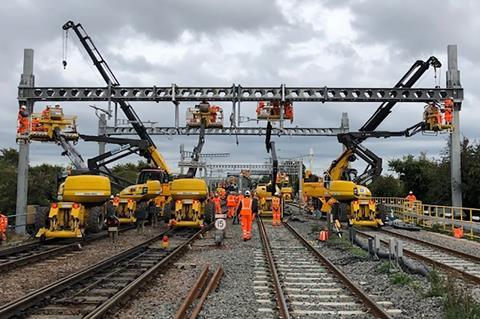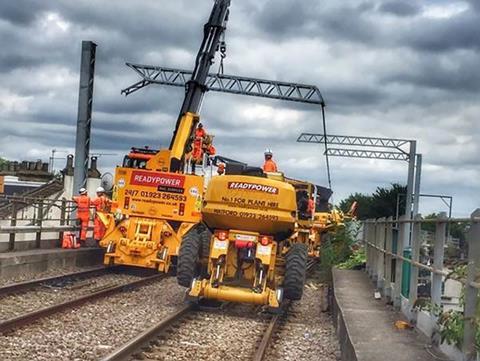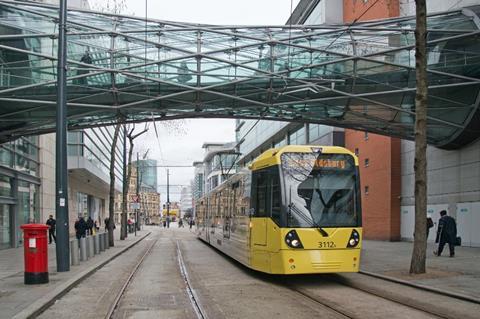
UK: The Department for Transport has published Decarbonising Transport: Setting the Challenge, a policy paper explaining out how it intends to develop a plan to meet the government’s target of net zero transport emissions by 2050. The plan is scheduled to be published later this year.
The policy paper points out that rail is a relatively low-carbon form of transport, and is becoming less carbon intensive as new trains come into service and the railway uses greener electricity. In 2018, greenhouse gas emissions from passenger and freight rail services made up 1·4% of the UK’s domestic transport emissions, while 10% of passenger-km in Great Britain were by rail.

GHG emissions from diesel trains and electricity generation per rail passenger-km in 2018-19 were 10·3% lower than for 2017-18, and rail GHG emissions are projected to rise by 19% between 2018 and 2050 despite an 60% increase in passenger demand over the same period.
Decarbonisation will require significant co-ordinated investment in both infrastructure and rolling stock, the paper says, and the government is working with the industry to build an evidence base to inform decisions about technology options. It will also consider how to encourage modal shift by making rail a more attractive option.
Decision making will be informed by the cross-industry Traction Decarbonisation Network Strategy which is currently being prepared by Network Rail and will consider where overhead electrification, battery or hydrogen power could be used.
Network Rail is also pursuing large-scale carbon reduction activities through an internal programme which includes energy efficiency, energy management practices and innovation in renewable energy, energy storage, low carbon design and transitioning its vehicle fleet to electric.
Commenting on the publication of the policy paper, Railway Industry Association Chief Executive Darren Caplan said ‘it is particularly welcome to see that the government recognise that electrifying more of the railway is likely to be necessary’. The rail industry is clear that, in order to decarbonise the network by 2040, a rolling programme of electrification is required, whilst utilising new technologies like hydrogen and battery on rural lines, or as an intermediary option.
He urged the government to bring forward electrification schemes before current projects are completed, ‘so that the rail sector can avoid losing valuable expertise, skills and capability in delivering electrification’.

Light rail campaign group TramForward said it was disappointed that ‘apart from a passing reference to the expansion of Manchester Metrolink, there is no mention of the role played by trams and light rail’, which ‘have a far better track record of encouraging modal shift from private to public transport than do buses’.
TramForward said carbon emissions represented only one environmental challenge, and electric cars would not lessen non-exhaust emissions including particulates from tyre and road wear.



